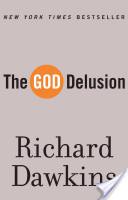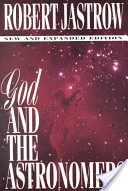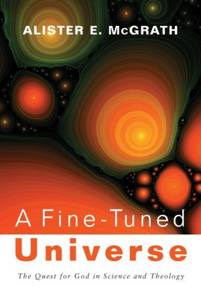This is the third in a series of blog posts concerned with Christian questions about evolution. In my last post we saw that science does not rule out God because it is not competent to address the question of God. But, is evolution compatible with belief in God as the Creator? That is the topic of this post.

A major concern for some Christians is that there is no need for God in the process of evolution. Ironically, this is also the view of atheists. In his book The God Delusion, the atheist biologist Richard Dawkins claims that evolution is not compatible with belief in a Creator God because of the automatic nature of the evolutionary process. He talks about a book Creation Revisited by another atheist scientist Peter Atkins. In this book Atkins
postulates a hypothetically lazy God who tries to get away with as little as possible in order to make a universe containing life. Atkins’s lazy god is even lazier than the deist God of the 18th-century Enlightenment: deus otiosus – literally, God at leisure, unoccupied, unemployed, superfluous, useless. Step-by-step Atkins succeeds in reducing the amount of work the lazy God has to do until he finally ends up doing nothing at all; he might as well not bother to exist.
A related concern for many Christians is that evolution can only be accepted by accommodating Biblical interpretation to fit contemporary scientific theories. Some would say that the creation accounts are meant to be taken literally. They argue that the church has always treated the Genesis creation accounts as straight forward history about how everything came to be. They fear that long-held Christian traditions of faithful Biblical exegesis are being abandoned.

Augustine’s Origin of Species. Alister McGrath addresses both of these issues in a recent article in Christianity Today entitled Augustine’s Origin of Species. It was written for the 200th anniversary of Darwin’s birth and the 150th anniversary of the publication of the Origin of Species. The ideas in the Christianity Today article have been further explored in two of his recent books, Darwinism and the Divine: Evolutionary Thought and Natural Theology and A Fine-Tuned Universe: The Quest for God in Science and Theology.
The North African bishop Augustine of Hippo (354-430 AD) wrote four commentaries on the early chapters of Genesis. The most significant and influential of these was a commentary entitled The Literal Interpretation of Genesis written between 401 and 415 AD. By literal Augustine meant in the sense intended by the author. This commentary was written 1,000 years before the Scientific Revolution and 1,500 years before Darwin’s Origin of Species. Thus it was not influenced by modern science.
In his commentary Augustine developed three core themes:
- God brought everything into existence in a single moment of creation.
- God endowed creation with the capacity to develop.
- The development of creation is always subject to God’s sovereign providence.
Augustine use the image of a seed growing and developing into a mature plant to illustrate the idea of God endowing the creation with the capacity to develop. He understood that the dormant seed contained all the potentialities that were needed for its further development. Although Augustine didn’t know the basis for these potentialities we now understand these as being the genes that program the development of the plant.
Augustine insisted that the first Genesis creation account (Genesis 1:1-2:3) must be interpreted within the broader context of the second Genesis creation account (Genesis 2:4-25) as well as other passages which speak about God’s creative activity. In particular he saw Psalm 33:6-9 and Genesis 2:4 speaking about the instantaneous creation of all things:
By the word of the Lord the heavens were made, their starry host by the breath of his mouth’For he spoke, and it came to be; he commanded, and it stood firm. — Psalm 33:6-9
These are the generations of the heavens and the earth when they were created, in the day that the Lord God made the earth and the heavens. — Genesis 2:4, italics added.
Similarly, He saw John 5:17, “But Jesus answered them, ‘My Father is working until now, and I am working.’” as indicating that God was continuously working in creation up to the present day and beyond.
Genesis 1 speaks of the earth and waters “bringing forth” living creatures. Early Christian writers suggested that God endowed the natural order with the capacity to generate living things. Augustine believed that God created the world complete with a series of dormant powers which were actualized at appropriate moments through divine providence. Genesis 1:12 states:
The earth brought forth vegetation, plants yielding seed according to their own kinds, and trees bearing fruit in which is their seed, each according to its kind.
For Augustine and other early Christian writers, this implied that the earth received the power or capacity to produce things by itself.
Thus Augustine saw that there were two moments of creation, the primary act of origination of the universe followed by a continuing process of creative development under providential guidance. God created a universe that was deliberately designed to develop and evolve. The blue print for that evolution is not arbitrary, but programmed into the very fabric of creation. God’s providence superintends the continuing unfolding of the created order. God has established fixed laws governing the production of kinds and qualities of beings, and bringing them out of concealment into full view. There is an amazing degree of consonance between Augustine’s interpretation of the Genesis creation accounts and the scientific account of the origin and subsequent evolution of the universe.
Primary act of origination. The Big Bang theory is the dominant scientific view of the origin and evolution of the universe. According to this theory, the universe came into existence in an instant. The Big Bang model of the instantaneous origin of the universe is consistent with the Bible’s account of God’s creation of the heavens and the earth ex nihilo (out of nothing). Space, time, matter and energy all came into being at the instant of God’s creation. Moreover the laws that govern the future development of nature also came into being at this moment. Importantly these laws of nature are fine-tuned for the development and the sustaining of life. Thus at the very beginning of creation, the universe contained all the potential needed for further development.

The Big Bang theory explains what happened after the universe was created but it has no explanation for where it came from and how it came into being. However the Bible provides the answer to that question. As I mentioned in a previous post the astronomer Robert Jastrow stated the problem very well in his book God and the Astronomers.
It is not a matter of another year, another decade of work, another measurement or another theory, at this moment it seems as though science will never be able to raise the curtain on the mystery of creation. For the scientist who has lived by his faith in the power of reason, the story ends like a bad dream. He has scaled the mountains of ignorance; he is about to conquer the highest peak; as he pulls himself over the final rock, he is greeted by a band of theologians who have been sitting there for centuries.
In his book Darwinism and the Divine, Alister McGrath states:
Evolutionary biologists often treat the molecular basis of evolution as being unproblematic, failing to appreciate, in the first place, that the process depends critically upon the chemical properties of certain core elements; and in the second, that the origins of these elements depend on the apparent fine-tuning of the constants of nature.
Continuing Development under Providential Guidance. Following the origin of the universe there is a pattern of the development of increasing complexity under the laws of nature. In this process cosmic evolution leads to the formation of stars and planets as well as chemical evolution in the stars. Chemical evolution leads to the development of the chemicals necessary for life. The origin of life, which may be a natural event or due to divine intervention, leads to biological evolution. But how might God guide the process of biological evolution?
Convergent Evolution. One answer is that at least some of the outcomes of evolution are built into the laws of nature. This idea is based on a phenomenon called convergent evolution. Convergent evolution is the “recurrent tendency of biological organisms to arrive at the same solution to a particular problem.” Examples include the evolution of the camera-like eye in multiple animal species by independent routes and the independent evolution of two of the photosynthetic pathways in multiple flowering plant species.
In his book Life’s Solution: Inevitable Humans in a Lonely Universe the Cambridge paleobiologist Simon Conway Morris states:
Life has a propensity to ‘navigate’ to rather precise solutions in response to adaptive challenges.
He sees these solutions as “Islands of stability” in the midst of an ocean of maladaptivity. He says that we should think of evolution as a search engine, randomly searching biological space for stable outcomes. The search process is random, but the destinations are predetermined by the laws of nature which specify the nature of the stable outcomes. Thus while chance may be the engine of evolutionary development, it does not determine its outcome. Chance powers the search engine, it does not, however, dictate what is found.
Simon Conway Morris is a committed Christian who sees the process of evolution as fully consistent with his belief in God. He would see convergent evolution as indicating that God endowed the creation with the ability to navigate to certain God ordained outcomes.
Primary and Secondary Causes. Another approach to understanding God’s providential guidance of evolution comes from the writings of the medieval theologian Thomas Aquinas. He made a distinction between primary and secondary causes of events in history and nature. In this view God who is the primary cause acts through secondary causes that he created. Let me give two illustrations that might help you to understand this concept. Imagine a pianist playing a piano. The pianist is the primary cause of the music but there would be no music without the piano which is the secondary cause of the music.
Another example which I typically use in my class is that of an automobile and the driver. The driver is the primary cause and the automobile is the secondary cause of purposeful movement down the road. Once the driver starts the car, it can continue to run without any intervention from the driver as long as it has gasoline. The driver could even put the car in gear and it would take off down the street on its own for a while but it would ultimately crash without human guidance. Thus the presence of the driver is needed for purposeful movement of the vehicle.
I think this is a great example of the way the God might guide evolution. Like my automobile example, evolution is an automatic natural process that operates based on the laws of nature that God created. But, like the automobile, evolution is dependent on outside guidance for purposeful activity.

Conclusions. The question we have addressed in this blog post is whether evolution is compatible with belief in God as the Creator. For Christians there are two ways that God may have used for the creation and further development of life on earth. One is direct, miraculous creation of all the kinds of living things and the second is through the providential guidance of a process (evolution by natural selection) that he created. This is in contrast to the Naturalism perspective where evolution is the only game in town.
My purpose in this post is not to convince you that evolution is true but to show that evolution is a live option for Christians. I talked about two key issues for Christians. The first is the question of whether acceptance of evolution requires that the interpretation of the first three chapters of Genesis be accommodated to the findings of modern science. But we saw that Augustine’s understanding of the literal meaning of Genesis was developed long before the modern scientific revolution or Darwin’s theory of evolution. Augustine understood creation as involving two moments. The instantaneous origin of the universe followed by the further development of the universe under the laws of nature created at the beginning.
The second issue is the automatic nature of the evolutionary process. I talked about two ways that God might exert providential guidance. One is by building at least some of the outcomes of evolution into the fabric of nature itself. We saw that “Life has a propensity to ‘navigate’ to rather precise solutions in response to adaptive challenges.” The second is through Aquinas’s notion of primary and secondary causes where God acts as the primary cause guiding a secondary cause, the natural process of adaptation through natural selection.
In 1871, Charles Kingsley’s, a canon of Westminster Abbey, remarked:
We knew of old that God was so wise that he could make all things; but, behold, he is so much wiser than even that, that he can make all things make themselves.
This was based on his reflections on Darwin’s Origin of Species. Like Augustine, Kingsley saw the process of evolution directed by divine providence.
Looking Ahead. In my next post we will continue the discussion of Christian questions about evolution by asking, what about Adam and Eve?
Questions for Further Reflection:
- What concerns do you have about evolution and its relationship to Christian belief?
- Augustine defined the literal interpretation of Genesis as meaning in the sense intended
by the author. Do you agree or disagree with his definition? - Do you think that it brings more glory to God to create directly or by guiding a process that he developed?

Suggestions for Further Reading:
- Augustine’s Origin of Species, Alister McGrath, Christianity Today (May 2009)
- Darwinism and the Divine: Evolutionary Thought and Natural Theology, Alister McGrath. Westminster John Knox Press, 2009.
- A Fine-Tuned Universe: The Quest for God in Science and Theology, Alister McGrath. Wiley-Blackwell. 2011.
- Science and Religion: A New Introduction, 2nd Edition, Alister McGrath. Wiley-Blackwell. 2010.
- Life’s Solution: Inevitable Humans in a Lonely Universe by Simon, Simon Conway Morris. Cambridge University Press. 2003.
- Added by the editor: PDF with the titles and links to the posts in Tom Ingebritsen‘s Christianity and Science series. Yes, this was created to meet the requests of readers and will be updated. Your interest in and encouragement of this series is much appreciated
Tom Ingebritsen is an Associate Professor Emeritus in the Dept. of Genetics, Development and Cell Biology at Iowa State University. Since retiring from Iowa State in 2010 he has served as a Campus Staff Member with InterVarsity Graduate & Faculty Ministry at Iowa State University

All due respect to the author, one of the main problems you have and you don’t seem to grasp, is that there is no scientific proof or any hard evidence for macro-evolution. All we have from the scientific community is a repeat of illegitimate inferences. Meaning the conclusions in science are conclusions that break the laws of logic.
I also think your reaction to Augustine’s comments on Genesis are just a hopeful and overly exuberant conclusion.
Lastly the problem is in your interpretation of scripture, scripture itself is not a prior i in the process of of understanding it’s context or meaning. Instead it appears you make the mistake a lot of others do and that is you use what you see in nature as your starting point..
Love in all forms is the answer, is what the message is. How to love the whole with so many ugly stains on it? Just do. No one is better than the next. One would say they are looking for their idea of perfect. But how can they be able to see perfection though blinded eyes. Blinded due to the fact they are unable to fully let go of the past. Seeing all the flaws of previous relaltipnships. How to love someone, I mean truely see past the imperfections of being a human. Most have been to bond to blindness, to refuse to see. To have it right in front and shy away, due to it’s too complicated. In a world full of chaos, even the brightest shine. Shining a beacon for all the lost to find courage in the light. Most will see and just refuse the love given. All have a issue with rejecting, not understanding that kind favors are done with the heart. Never expecting anything in return. You do the right thing not for the reward, but because it’s the right thing to do. That idea of love is long lost to many. Their minds have already been set in stone, that everyone has a hidden agenda behind thier kind acts.Â
As I ramble, my own thoughts race. Making it harder to make sense. I hold so much baggage from refusal to share. To be judged for my thoughts, and not by my actions. But should I really fear what my own my mind creates. Wanting to learn so desperately a new way to process. A new way of being, from the old. I met a man with a beautiful smile, who shed light on who I was. Not showing the full veiw, but merely who I am now. We change daily; from our appearance, down to our smallest emotion. Change is the only constant in our lives. It is what brings us sunsets and sunrises. It washes in a new tide and daily obstacles to, well, to make us or break us. Take full advantage of change, dance with it, embrace it, be it.
Understanding that the words wrote in the scriptures are inspired by the creator but still wrote by man(in their own perspective and interpretation of the creator). We are a species of animals, the only thing I disagree with with mr. Darwin’s theory is that we came from apes. Okie dokie I’m done ranting y’all have a blessed day